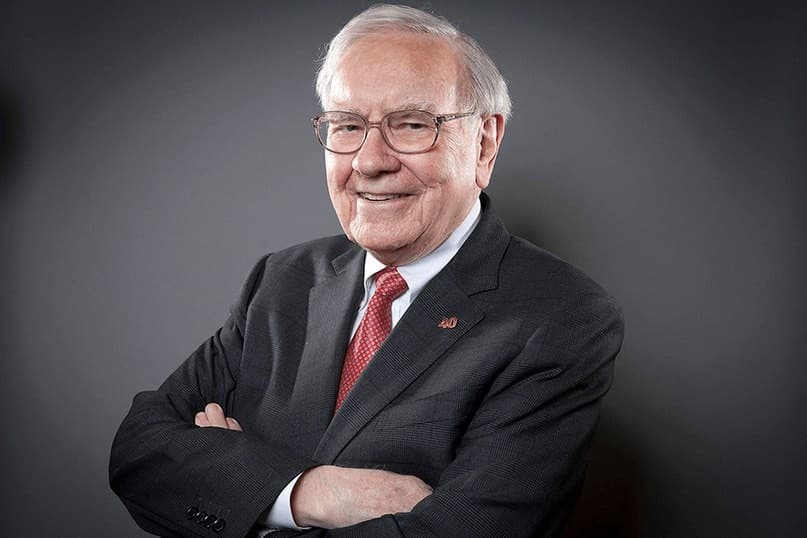Warren Buffett deliberately ignores 99.9% of available financial data. This "ignorance" made him $100 billion.
While most investors consume every market report, earnings call, and analyst prediction they can find, Buffett practices what can only be called strategic deafness. He doesn't just avoid information—he actively filters it out. And this isn't laziness or arrogance. It's mastery of the most valuable skill in business: knowing what not to pay attention to.
The Billionaire Filter
The ultra-successful don't consume more information than you—they consume dramatically less. But what they do consume, they process with surgical precision.
Warren Buffett reads 500 pages daily, but 90% of it comes from just a handful of sources: annual reports, industry publications, and books that have stood the test of time. He ignores daily market fluctuations, analyst upgrades and downgrades, and the endless stream of financial media noise that captivates most investors.
The Buffett Filter
Buffett asks one question about every piece of information: "Will this help me make a better decision about a business I might own for 10 years?" If the answer is no, he ignores it completely.
Bill Gates takes this even further. During his Microsoft years, he scheduled "Think Weeks" twice a year—seven days of complete isolation with no meetings, no phone calls, and no interruptions. Just him, a stack of carefully selected papers, and the space to think deeply about what actually mattered.
Jeff Bezos built Amazon by focusing obsessively on customer experience while ignoring quarterly earnings pressure, competitor moves, and media criticism. When asked about his decision-making process, he said: "I ignore the noise and focus on the signal. The signal is always the customer."
Signal Detection Mastery
The difference between signal and noise isn't just volume—it's relevance to outcomes. Signal moves you toward your goals. Noise just moves.
Consider Google Analytics. Most business owners obsess over dozens of metrics: bounce rate, time on site, pages per session, traffic sources, device breakdowns, geographic data, and more. But successful digital marketers focus on just 2-3 metrics that directly correlate with revenue: conversion rate, customer acquisition cost, and lifetime value.
Real Example: A SaaS company was tracking 47 different metrics in their dashboard. After implementing signal detection principles, they focused on just 3: monthly recurring revenue growth, churn rate, and net promoter score. Revenue increased 340% in 18 months because the team could finally see what actually drove results.
The pattern repeats across every successful business leader:
- Ray Dalio built Bridgewater by focusing on economic principles that drive long-term cycles, ignoring daily market sentiment
- Elon Musk focuses on first-principles thinking and engineering constraints, ignoring industry "best practices"
- Charlie Munger reads biographies and psychology books, ignoring financial forecasts and market predictions
The Focus Frequency
Think of information like radio frequencies. Most people have their business "radio" scanning constantly—picking up every signal, every piece of news, every metric, every opinion. The result is static.
Masters of focus have learned to tune into a specific frequency and stay there. They've identified the 3-5 information sources that consistently provide actionable insights for their specific goals, and they ignore everything else.

Like tuning a radio, business success requires filtering out static to hear the clear signal that drives results.
This isn't about being uninformed—it's about being strategically informed. When you're tuned to the right frequency, you hear things others miss. You notice patterns in customer behavior while competitors chase vanity metrics. You spot market shifts while others debate daily fluctuations.
The Billionaire Information Diet
Buffett owns a $5 billion stake in Apple but has never owned an iPhone. He makes billion-dollar investment decisions without reading a single analyst report. His information diet is so restrictive it would seem insane to most investors—and that's exactly why it works.
Here's what the world's most successful people actually consume:
Warren Buffett: Annual reports, Moody's manuals, trade publications from the 1970s, and biographies of dead businessmen. He deliberately avoids: stock prices, market forecasts, economic predictions, and anything published in the last 12 months.
Charlie Munger: Reads biographies obsessively, studies cognitive psychology, and collects examples of human folly. He ignores: financial news, investment newsletters, and anything that promises to predict the future.
Ray Dalio: Focuses on economic history, debt cycles, and geopolitical patterns spanning centuries. He filters out: daily market movements, political commentary, and short-term economic data.
The Munger Method
"I never allow myself to have an opinion on anything that I don't know the other side's argument better than they do." This single filter eliminates 95% of available information.
Notice the pattern: they consume old information about permanent things, not new information about temporary things.
The Ignorance Advantage
The most profitable investors systematically ignore information that everyone else considers essential. This isn't accidental—it's strategic.
When Berkshire Hathaway's stock dropped 50% in 2008, Buffett didn't read a single news article about it. While other investors panicked over daily headlines, he spent his time reading about railroad economics and insurance float calculations. Berkshire recovered and hit new highs. The panicked investors never did.
Jeff Bezos built this principle into Amazon's culture. He banned PowerPoint presentations because they encourage superficial thinking. Instead, Amazon executives write six-page memos that force deep analysis. The result: while competitors chase quarterly metrics, Amazon builds decade-long advantages.
The Netflix Signal: Reed Hastings ignored industry metrics like "cost per subscriber acquisition" and focused on one number: hours watched per subscriber. While competitors optimized for vanity metrics, Netflix optimized for engagement. Result: Netflix now controls 15% of global screen time.
What They Actually Track
Successful leaders don't track more metrics—they track different metrics. Here's what they actually monitor:
Instead of revenue growth: Customer lifetime value trends
Instead of market share: Customer switching costs
Instead of competitor analysis: Customer problem evolution
Instead of industry reports: Regulatory change patterns
The signal isn't louder than the noise—it's completely different from the noise.
The Compound Effect of Focus
The power of signal detection compounds over time. When you consistently focus on high-value information while ignoring noise, several things happen:
Pattern Recognition Improves: You start seeing connections and trends that others miss because you're not distracted by irrelevant data.
Decision Speed Increases: With less information to process, you make faster, more confident decisions.
Stress Decreases: Information overload creates anxiety. Strategic ignorance creates calm.
Results Improve: Focus on what matters leads to better outcomes, which creates a positive feedback loop.
Buffett didn't become the world's greatest investor by consuming more information than everyone else. He became great by consuming the right information and ignoring everything else. His "ignorance" isn't a limitation—it's his competitive advantage.
Your Signal Starts Now
The noise will always be there, growing louder and more insistent. The signal—the information that actually matters for your success—remains constant and quiet. The choice is yours: join the crowd drowning in noise, or master the art of strategic focus.
Start today. Pick one information source you consume regularly that doesn't directly improve your key outcomes. Stop consuming it for one week. Notice how this affects your decisions, your stress level, and your results.
Then eliminate another source. And another.
Keep filtering until all that remains is signal—clear, actionable, outcome-focused information that moves you toward your goals. This is how billionaires think. This is how masters focus.
This is how you tune out the noise and tune into success.




